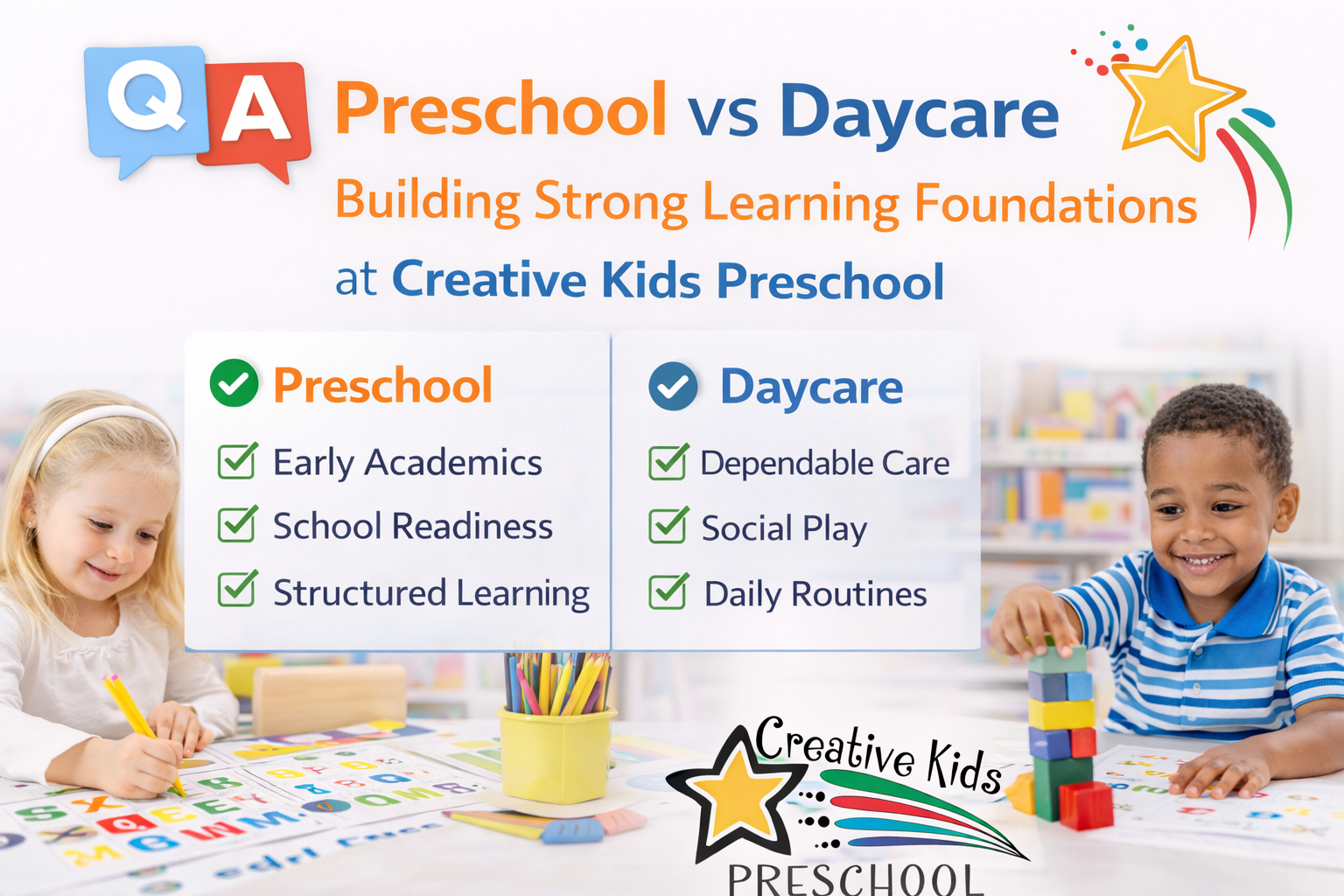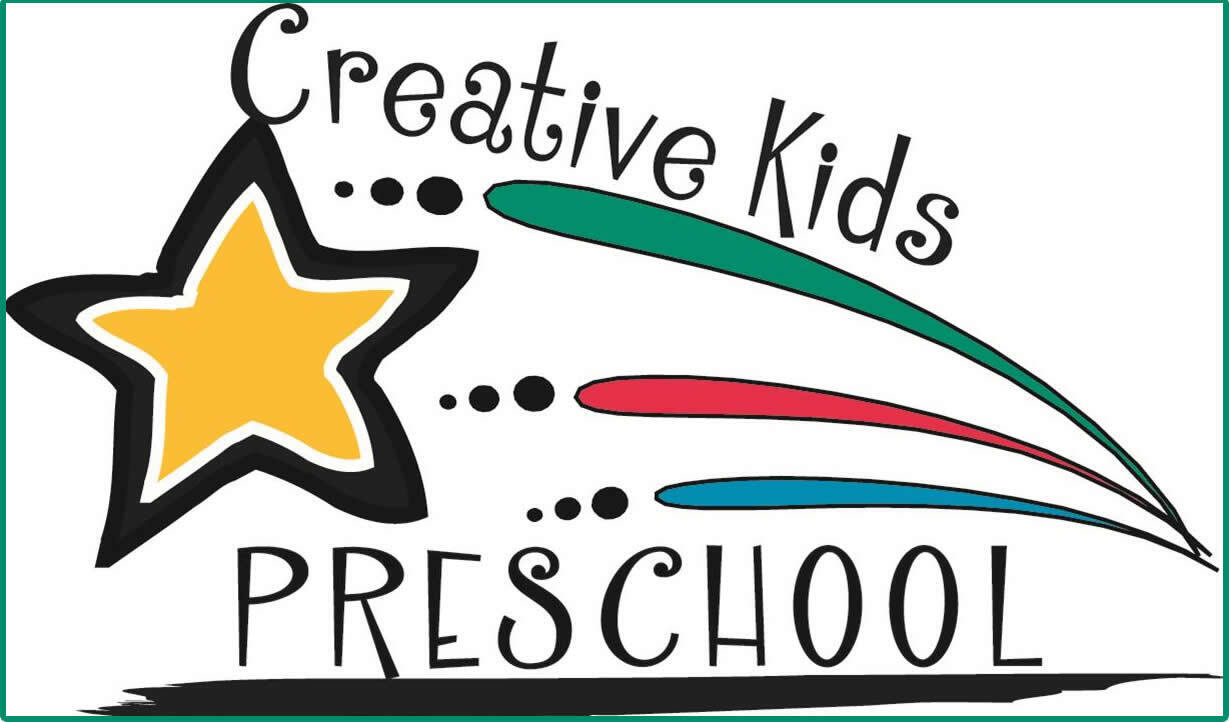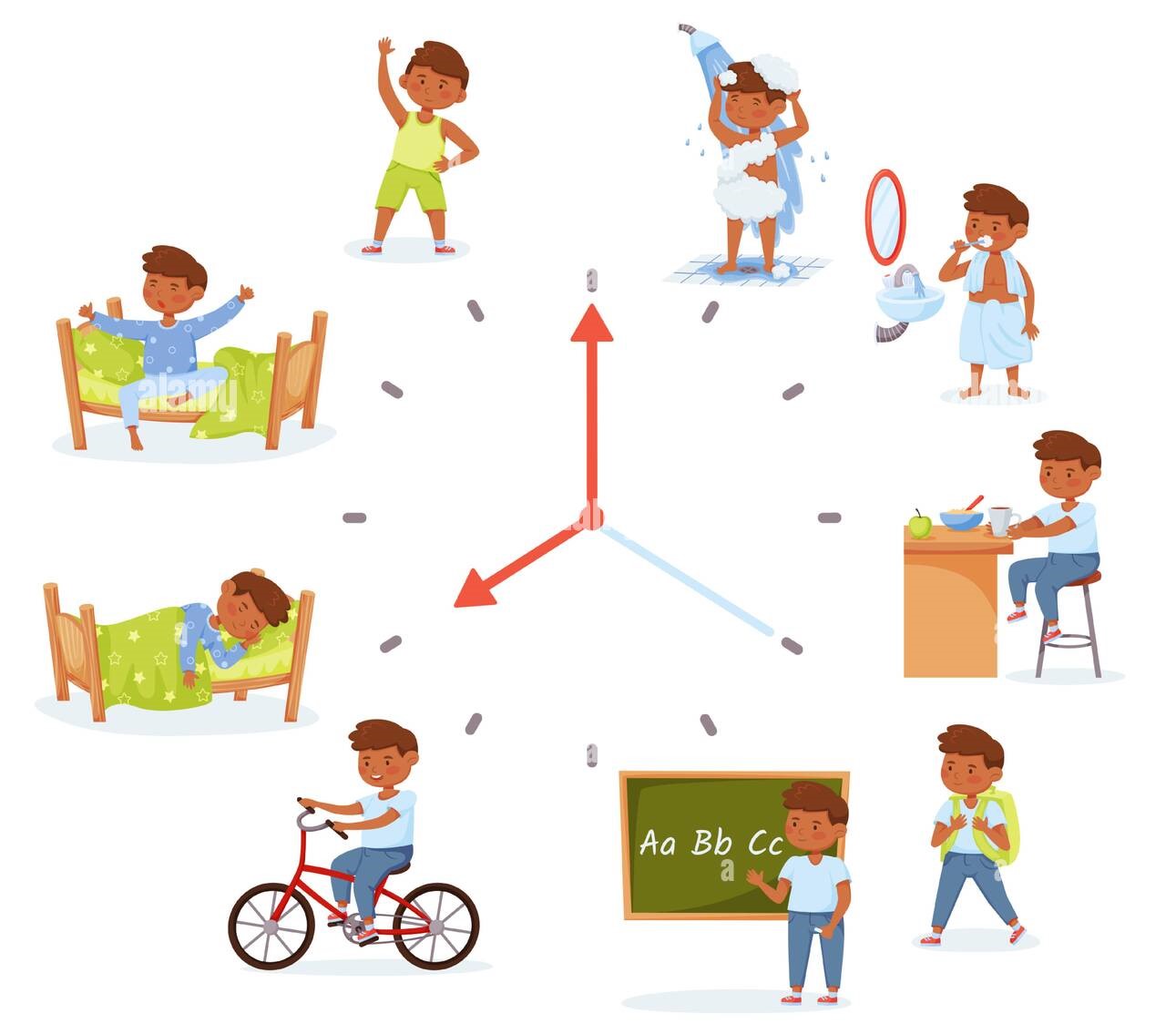
Preschool vs Daycare: Building Strong Learning Foundations | Creative Kids Preschool Tucson
Parents often ask wh...

The Kovacs Family has been leading Creative Kids Preschool since 1998, emphasizing excellence in early childhood education. Our goal is to offer a nurturing and quality educational experience by developing the whole child: intellectually, socially, emotionally, physically, and spiritually in a safe, clean and healthy environment.

Parents often ask wh...

Families choosing ea...


Raising preschool-aged children can sometimes feel like herding cats, with their boundless energy and curiosity. However, beneath that seemingly chaotic exterior, children thrive when provided with a consistent routine and structure. In this blog, we'll explore why setting routines and structure for preschool-aged children is crucial for their development and overall well-being.
1. Predictability and Comfort
Imagine a world without routines - no set bedtime, mealtime, or playtime. It would be disorienting for adults, let alone for young children who are still trying to make sense of the world. Routines offer predictability and comfort. Knowing what comes next provides a sense of security, reducing anxiety and meltdowns.
2. Building Healthy Habits
Routines lay the foundation for healthy habits. From brushing teeth to washing hands, routines help children establish essential life skills. By making these activities a part of their daily structure, you're setting them up for a lifetime of good hygiene and health practices.
3. Emotional Regulation
Preschoolers are often still learning to manage their emotions. A structured routine helps them understand their feelings better and learn to express them appropriately. When children know they have a designated time for expressing themselves (like during a "sharing circle" or "quiet time"), it can prevent emotional outbursts.
4. Encouraging Independence
Structure encourages independence. When children know what's expected of them and when, they can take more ownership of their tasks and responsibilities. Whether it's getting dressed, tidying up their toys, or setting the table, routines foster a sense of competence and self-reliance.
5. Academic Preparedness
For many preschoolers, this is their first taste of a structured learning environment. Establishing routines for learning activities helps them transition smoothly into school later on. Activities like reading together, doing puzzles, or engaging in educational games become integral parts of their daily routine, setting the stage for a positive attitude toward learning.
6. Improved Sleep Patterns
Preschool-aged children need a lot of sleep to support their growth and development. A consistent bedtime routine signals to their bodies that it's time to wind down and rest. Adequate sleep, in turn, enhances cognitive and emotional development.
7. Time for Play and Creativity
Structured routines shouldn't be all about rules and tasks. They should also allow ample time for play and creativity. Free play is essential for imagination, problem-solving, and social development. A well-balanced routine provides these opportunities.
8. Family Bonding
Routines can also create meaningful family bonding moments. Shared activities like family dinners or bedtime stories become cherished traditions. These moments not only strengthen family connections but also provide valuable life lessons and memories.
Implementing a Structured Routine
Creating a routine for your preschooler doesn't mean every minute of their day needs to be planned. Start with a basic framework that includes wake-up time, meals, playtime, learning activities, and bedtime. Be flexible when necessary, but try to maintain consistency.
In conclusion, at New Discoveries Preschool we believe that setting routines and structure for preschool-aged childrenat home is a vital aspect of their development. It provides stability, helps them build healthy habits, and prepares them for academic success and emotional well-being. As parents and caregivers, we have the power to create a nurturing and empowering environment where our little ones can thrive. So, let's embrace the building blocks of routine and structure as we guide our children on their journey of growth and discovery.